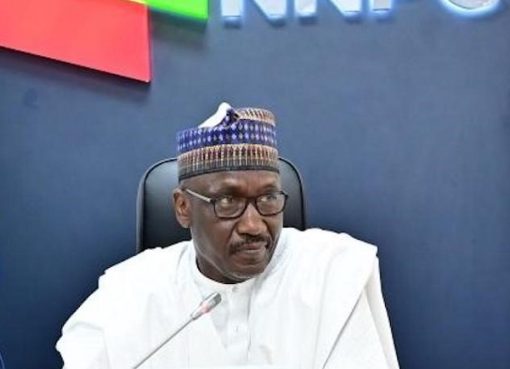Dr Yele Okeremi is the President of Institute of Software Practitioners of Nigeria. He identifies the lack of government policy as being responsible for the brain drain in the Information Technology industry.
Has the use of local software in Nigeria improved significantly over the years?
Look at it. There’s an improvement in actual terms but is that where we should be? Definitely, no. Also, the improvement you see is in spite of what the key players should be doing. Most of the improvements are self-induced by the operators themselves. It is like we should have travelled say 1,000 kilometres and have just travelled 50km.
In which area has there been an improvement in the patronage of local content in the ICT industry?
Speaking generally about technology, National Information Technology Development Agency will tell you that it forced some government agencies to patronise some local content, which is mostly on hardware and machines.
What the agency has done in the software space, I don’t really know as I am yet to see, but when you hear that there is some improvement, it has been catalysed by probably getting some people to buy Nigerian made and Nigerian assembled computers.
My thinking is this: what area should Nigeria be looking at ordinarily? I would have suggested that if we wanted to be competitive globally, we should have been looking more into the software space, and I don’t see much traction in that space from the government side.
Of course, from the standpoint of the local entrepreneurs, many people are trying their best. And so, what you see is that when you have a system where people know that they are not protected by anybody, they start fending for themselves. And that is what I see.
Most of the success stories that you hear about are generated by the efforts of entrepreneurs. I still do not see a national strategy or push to becoming self-sufficient or reliant on local software at all. I don’t see it.
But SystemSpecs is an inspiring example of a local firm that has been able to solve problems for the government.
What you see is as a result of the efforts of entrepreneurs who are taking their own fate into their hands. And I gave the example that, it’s like we should have moved a thousand kilometres and we’ve moved fifty and then we are hailing ourselves. Of course, that’s progress but is that where we should be?
I don’t know whether you have spoken to SystemSpecs, but what I know as President of ISPON is that there is a question of whether that is where SystemSpecs should be. So you come up with some ingenious solution that is being widely touted as Treasury Single Account and what’s the compensation for it? What is the policy that supports that such innovations are well remunerated and repeated? To the best of my knowledge, it’s not the best that we could have done.
What progress has been made regarding the capacity building of software developers that you promised on your inauguration as President of ISPON?
That was what I have alluded to that all the progress that you see are the efforts of entrepreneurs by themselves. Last week, for example, I’m sure you heard the news that Andela had raised $100m. Is that something we should cheer or something we should weep over? These are very interesting questions.
 While my colleagues in the government would want to make you feel like they have achieved something, a sound government should feel weakened over such things because where did $100m come from? Did it come from Nigeria? We know it didn’t come from Nigeria.
While my colleagues in the government would want to make you feel like they have achieved something, a sound government should feel weakened over such things because where did $100m come from? Did it come from Nigeria? We know it didn’t come from Nigeria.As a matter of fact, it came from the firm that belongs to a former US president, if I’m right. So you can see what’s going on. So once again, the US is buying Nigeria and we are rejoicing. How daft can we be?
Does this mean we do not have enough grants from Nigerian investors to support IT developers?
The answer to your question is that we do not have and we do not even have a strategy for making it happen. That’s the problem. Let me tell you what is going on so that you can understand in proper context what I’ve been talking about.
You asked the first question about how local software has been. I told you, “Yes; there is progress.” Today, I read it in one of the news flashes that all over the world, people view Nigeria as a country with a lot of talents. Some of these talents are identified as start-ups.
What happens is this. We are producing a lot of start-ups but we do not know where they would end up. I am a system engineer and what they taught me and I know works is that a proper system has a single-entry point and a single exit.
For start-ups, one should be able to predict where they are ending up. All these strategies for smart nations are galvanised for creating wealth in the country but what we are doing in Nigeria is that we are creating start-ups that are ending up in America; just like you’re seeing.
Incidentally, today, they interviewed the country manager of Andela on Classic FM and I listened to it. They asked her pointedly if Andela was a Nigerian company and she said “No, but it started from…” which is a real shame.
It’s not a Nigerian company you know that. Is Interswitch a Nigerian company? It started as a Nigerian company but it’s not a Nigerian company anymore. How careless can we be as a people? So, we are actually creating start-ups and allowing them to never end up with us. So, once again we are back to what we used to do.
You plant cocoa and you export raw cocoa, you plant groundnut and you export raw groundnut. You have oil beneath your ground you don’t even know what to do about it; you export crude oil. Once again, you’re exporting crude human resources!
This just doesn’t make sense for a nation that wants to develop. For a nation that wants to develop, you would want to internalise it. That is exactly the reason why I told you that I do not see a national strategy for achieving the kind of capacity development that we are talking about. And we are just screaming and people are jumping for joy. Instead of having gone far, we’re still crawling and you’re thumping your chest.
Have you tried to liaise with the government agencies to develop such a strategy or policy?
Every day we do. I used to sit on the board of NITDA. I represented ISPON on the board of NITDA and you need to know that the system is much bigger than you. We were on the board and we thought we were in a democracy but some other party came, took over, and truncated the board. We don’t even have continuity.
How do all these things work? So nobody even knows what is happening again. Look we’re going to keep talking to them but again, I think we’d better conserve our energy, because if you spend all your energy talking to these people rather than make 25 kilometres of our 1,000-kilometre journey, we wouldn’t even make any progress at all. But I know if we have smart, competent and disciplined people who determine how things would happen; we shouldn’t be where we are as a country.
Just this morning, I had a meeting with a partner and he was talking to me about India. He asked me how I thought India did it as they have a lot of well-trained engineers. He asked me if I thought Nigeria had as much and I answered “yes”.
What do we really need? Whatever you learn today in IT, within two years, it is obsolete. And so what IT firms that are smart are looking for is not the knowledge of what you have.
In fact, when I was listening to the country manager of Andela today, it was one of the things she said; that Andela would prefer to hire people who started at 30 per cent and within the time they trained them grew to 65 per cent than somebody that had 70 per cent and developed to a 75 per cent.
This tells you that what smart companies all over the world are looking for is not what you know today. It’s your capacity to learn and everybody in the world is used to the fact. Zuckerberg was in Nigeria and he said it that and alluded to the fact that the Nigerian child – boy or girl – is very intelligent. Not only are we very intelligent and creative, but we also have the capacity to learn. And that’s the most important thing.
I agree we may not know many things but that capacity to learn is the most important ingredient and we have this in abundance. What that means is that if we know what we are doing as a nation, we can leapfrog India.
Compared with other African countries, what is your perception of the Nigerian technology industry growth?
In the city of the blind, the one-eyed man is a king. Therefore, the Nigerian government may want you to believe that we are doing enough. Of course, we are not doing as well as Egypt for example.
If you take a look at Kenya, you would see that Kenya seems to be the destination for foreign investors. So I was talking to this Indian today and he said one of the problems is that “the name of the country is not such a very good asset for you guys. Once they hear you are from Nigeria, everybody backs off.”
If India was able to leapfrog based on exports, Nigeria doesn’t have to do the same thing. We can leapfrog based purely on import substitution. We really don’t need to export anything. We could create legal companies based on import substitution.
You will realise that in terms of all these things if I talked about how Nigeria is faring; well, I don’t care what the government says; we are not faring well.
Source: Punch











17 thoughts on “FG Lacks Policy To Encourage Local Software Developers —ISPON”